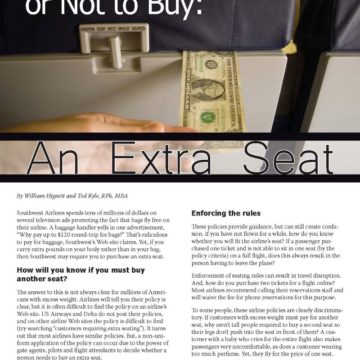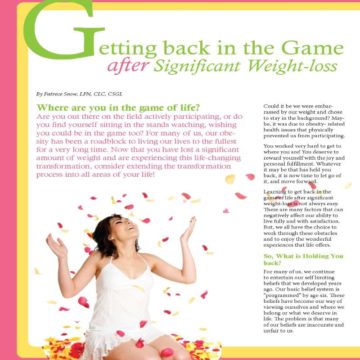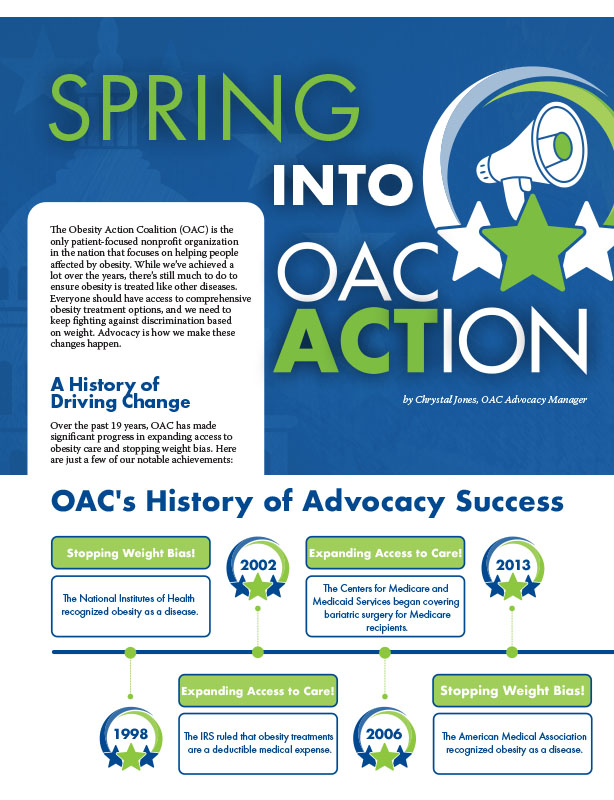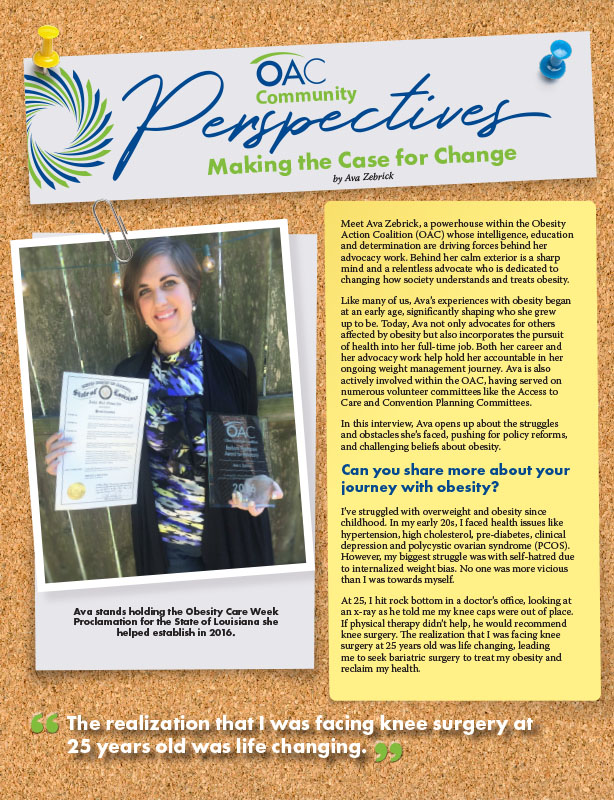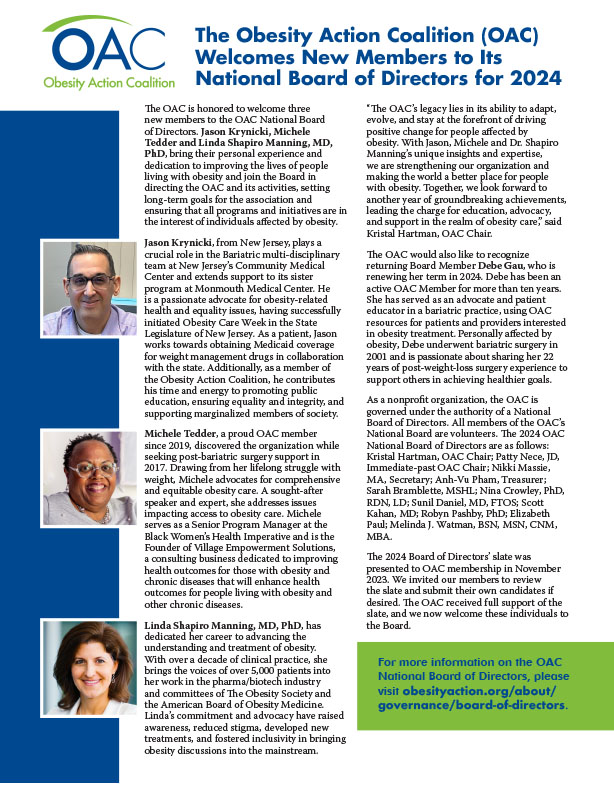"Fattertainment" – Obesity in the Media

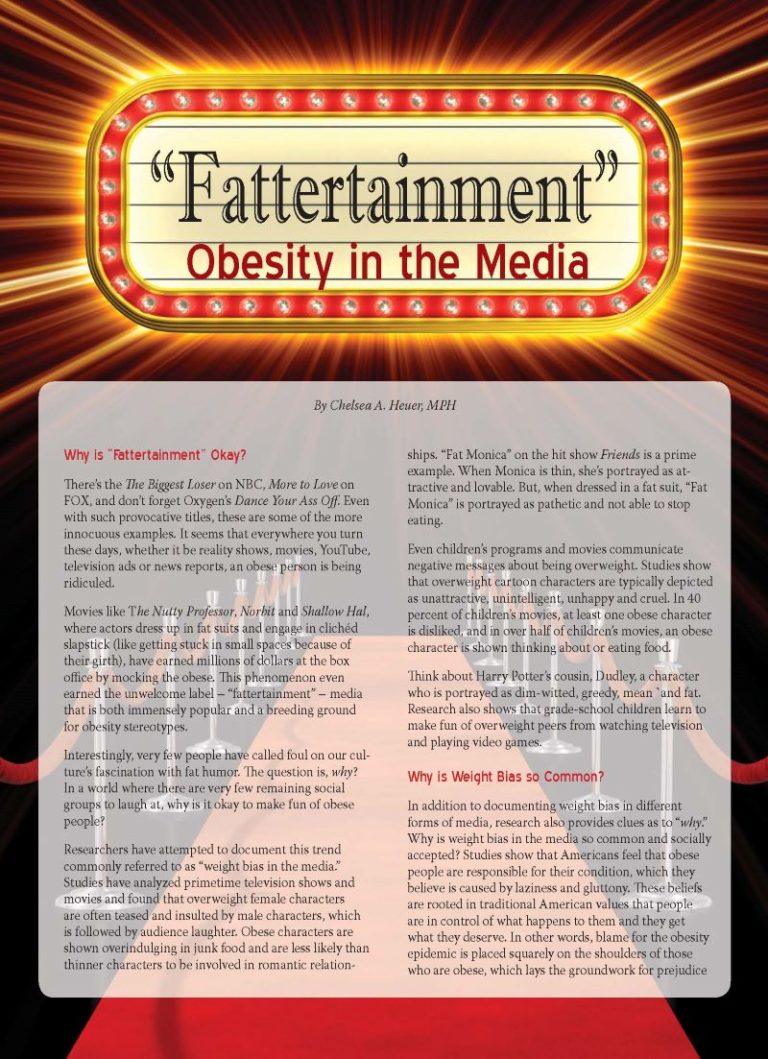
by Chelsea A. Heuer, MPH
Spring 2010
There’s The Biggest Loser on NBC, More to Love on FOX, and don’t forget Oxygen’s Dance Your Ass Off. Even with such provocative titles, these are some of the more innocuous examples. It seems that everywhere you turn these days, whether it’s reality shows, movies, YouTube, television ads or news reports, a person with obesity is being ridiculed.
Movies like The Nutty Professor, Norbit and Shallow Hal, where actors dress up in fat suits and engage in clichéd slapstick (like getting stuck in small spaces because of their girth), have earned millions of dollars at the box office by mocking individuals with obesity. This phenomenon even earned the unwelcome label “fattertainment” – media that is both immensely popular and a breeding ground for obesity stereotypes.
Interestingly, very few people have called foul on our culture’s fascination with fat humor. The question is, why? In a world where there are very few remaining social groups to laugh at, why is it okay to make fun of people with obesity?
Researchers have attempted to document this trend commonly referred to as “weight bias in the media.” Studies have analyzed primetime television shows and movies and found that overweight female characters are often teased and insulted by male characters, which is followed by audience laughter.
Characters with obesity are shown overindulging in junk food and are less likely than thinner characters to be involved in romantic relationships. “Fat Monica” on the hit show Friends is a prime example. When Monica is thin, she’s portrayed as attractive and lovable. But, when dressed in a fat suit, “Fat Monica” is portrayed as pathetic and not able to stop eating.
Even children’s programs and movies communicate negative messages about being overweight. Studies show that overweight cartoon characters are typically depicted as unattractive, unintelligent, unhappy and cruel. In 40% of children’s movies, at least one character with obesity is disliked, and in over half of children’s movies, a character with obesity is shown thinking about or eating food.
Think about Harry Potter’s cousin, Dudley, a character who is portrayed as dim-witted, greedy, mean and fat. Research also shows that grade-school children learn to make fun of overweight peers from watching television and playing video games.
Why is Weight Bias So Common?
In addition to documenting weight bias in different forms of media, research also provides clues as to “why.” Why is weight bias in the media so common and socially accepted?
Studies show that Americans feel that people with obesity are responsible for their condition, which they believe is caused by laziness and gluttony. These beliefs are rooted in traditional American values that people are in control of what happens to them and they get what they deserve. In other words, blame for the obesity epidemic is placed squarely on the shoulders of those who have obesity, which lays the groundwork for prejudice against people with obesity. Because people with obesity are perceived to be responsible for the obesity epidemic, society feels they deserve what they get, including laughter and humiliation.
News coverage of obesity provides a clear example of this American ideology. The news media takes a victim-blaming approach, attributing America’s weight problems to poor choices and laziness. Headlines in the past few years have blamed people with obesity for rising fuel prices, global warming and causing weight gain in their friends.
These reproachful messages are accentuated by the scores of “headless” people with obesity in the news. We’ve all seen them – news photographs and video footage of unknowing people with obesity walking down the street with their heads cut out of the shot. These images are so common, they have become a cultural phenomenon. One satirical headline found on the Web reads, “Study: Obesity linked to headlessness,” and discusses a new research finding that headlessness may be a significant contributor to excessive weight gain.
In fact, actual research has examined portrayals of individuals with obesity on five major news Web sites and found that 60 percent of people with obesity in news photographs are shown as “headless.” The same study found that 72 percent of news images portraying people with obesity were stigmatizing. News images that isolate body parts or place unnecessary emphasis on weight are demeaning and dehumanizing to people with obesity, reducing them from whole individuals to symbols of the obesity epidemic.
What is the Impact of “Fattertainment” on Society?
Unfortunately, fat humor and “fattertainment” have an equally unfavorable impact on public perceptions about people with obesity. Many Americans may somehow feel that making fun of people with obesity is not only justifiable, but also beneficial, because it provides motivation to lose weight. Research, however, tells us that this isn’t true. Weight bias is damaging to people with obesity in many ways. Studies show that people with obesity who experience weight bias may become depressed, anxious and have low self-esteem.
Weight bias also creates barriers for people with obesity that actually reduce motivation to lose weight. For example, some research has found that people with obesity who reported being victims of weight prejudice had a harder time losing weight than people with obesity who didn’t experience weight prejudice. Researchers have even found evidence that some of the health problems associated with obesity may actually result from stigmatizing experiences, rather than just excess body weight itself.
Because weight bias and fat humor are so common in the media, it may seem acceptable to make fun of people with obesity. But in reality, the media’s depictions of people with obesity are harmful. Thus, the growing trend of “fattertainment” is troubling.
While it’s promising to see more Americans with obesity represented on television, it’s imperative that these representations be free from stereotypes and ridicule. Think about hours of TV air time that are devoted to weight-loss competitions, like Celebrity Fit Club on Vh1. It’s interesting that for the few shows on television that feature Americans with obesity, the entire cast is trying desperately to become thin. It’s also no coincidence that titles like The Biggest Loser are full of double meaning.
How Can We Stop this?So if it’s not okay to make fun of people with obesity, what can we do to stop it?
|
About the Author:
Chelsea Heuer, MPH, is a Research Associate at the Rudd Center for Food Policy and Obesity at Yale University. She conducts research aimed at reducing stigma and discrimination for persons affected by obesity.
by Chrystal Jones, OAC Advocacy Manager Spring 2024 The Obesity Action Coalition (OAC) is the only patient-focused…
Read Articleby Ava Zebrick Spring 2024 Meet Ava Zebrick, a powerhouse within the Obesity Action Coalition (OAC) whose…
Read ArticleThe OAC is honored to welcome three new members to the OAC National Board of Directors. Jason Krynicki,…
Read Article




